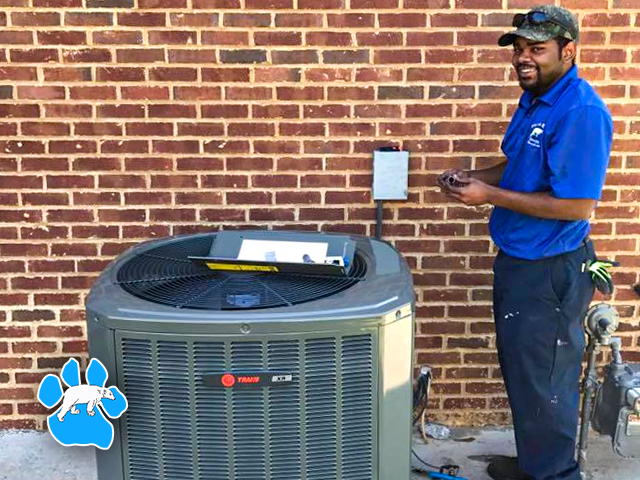Exactly How to Boost Energy Effectiveness With Your Cooling And Heating System and Heater Upgrades
As energy expenses continue to climb, the relevance of enhancing energy effectiveness with Cooling and heating system and furnace upgrades can not be overstated. Assessing your present system's efficiency and thinking about energy-efficient choices are necessary initial actions.
Examine Your Existing System
Prior to getting started on any upgrades, it is necessary to analyze your current HVAC system and heater to understand their performance and efficiency. This initial evaluation offers a structure for identifying areas that require enhancement and notifies decisions about potential upgrades. Begin by examining the age of your heating and cooling system, as obsolete designs may lack modern energy-saving features.

Power consumption documents will certainly likewise be crucial in evaluating your system's functional costs. Think about performing a professional power audit to obtain an expert evaluation of your system's efficiency.
Upgrade to Energy-Efficient Designs
Updating to energy-efficient models is a pivotal step in enhancing the general efficiency of your heating and cooling system and heating system. These contemporary units are created to eat less energy while providing optimum heating & cooling, leading to substantial expense financial savings on utility bills and a minimized environmental footprint.
When taking into consideration an upgrade, look for versions that have high Seasonal Energy Performance Ratios (SEER) for air conditioning and Annual Fuel Use Efficiency (AFUE) rankings for heaters. These rankings suggest the efficiency of the systems, with greater numbers mirroring far better efficiency. Energy-efficient versions often incorporate advanced innovations, such as variable-speed electric motors and smart thermostats, which additionally boost power financial savings.
In addition, several energy-efficient HVAC systems are equipped with improved insulation and far better securing, which reduce energy loss and improve interior convenience. furnace repair. While the preliminary investment may be greater, the lasting cost savings on energy costs and possible tax obligation rewards for utilizing energy-efficient appliances can counter this cost substantially

Ultimately, updating to energy-efficient models not only adds to a more sustainable future however likewise boosts the convenience and efficiency of your home or company.
Optimize System Settings
To make best use of the performance of your HVAC system and heater, it is essential to maximize system setups customized to your certain requirements. Start by setting your thermostat to an energy-efficient temperature level.
Make use of programmable or clever thermostats that enable you to arrange temperature level changes immediately. This ensures your system runs just when needed, minimizing energy consumption. In addition, make certain that your system is readied to run in the appropriate mode-- home heating in wintertime and air conditioning in summertime-- while avoiding the continual follower option unless needed for air flow.
Frequently review and readjust settings based on seasonal adjustments, occupancy patterns, and details convenience choices. Also, ensure that vents and registers are unobstructed, enabling optimum air movement. Ultimately, go to this site consider zoning systems that useful source enable customized convenience in different locations of your home, even more enhancing effectiveness. By fine-tuning these settings, you can accomplish significant energy financial savings while maintaining a comfy living setting.
Improve Insulation and Sealing
A well-insulated home is key to taking full advantage of the performance of your heating and cooling system and heating system. Proper insulation decreases the work on these systems, therefore conserving energy and lowering utility expenses. Begin by analyzing your home's insulation in locations such as the attic room, walls, and floors. Insulation materials like fiberglass, foam, and cellulose can substantially boost thermal resistance, aiding to maintain conditioned air inside and exterior air out.
In addition to insulation, sealing gaps and cracks is important. Pay special attention to windows, doors, and any infiltrations in wall surfaces, such as electric outlets and pipes fixtures. Weatherstripping and caulking can efficiently seal these openings, preventing drafts that compromise your HVAC performance.
Furthermore, guarantee that ducts are properly shielded and secured. Leaking ducts can lead to substantial power losses, minimizing system performance. Using mastic sealer or metal tape to seal air duct joints can improve airflow and performance.
Arrange Normal Maintenance
Regular maintenance of your Heating and cooling system and heating system is necessary for making certain optimum efficiency and long life. Throughout upkeep, a certified professional will certainly cleanse and change filters, check cooling agent degrees, evaluate ductwork for leakages, and review total system procedure.
It is recommended to set up upkeep a minimum of two times a year-- as learn the facts here now soon as in the springtime for the air conditioning system and as soon as in the succumb to the heating unit. residential hvac company. Normal upkeep assists preserve constant indoor temperatures, ensuring comfort throughout the year. In addition, a well-maintained system operates much more efficiently, which can result in visible reductions in energy costs
Disregarding upkeep can result in reduced effectiveness, enhanced deterioration, and eventually, system failure. By focusing on normal solution, home owners can stay clear of unforeseen breakdowns and ensure their cooling and heating system and heater operate at peak performance. Spending in maintenance is a crucial action in boosting energy effectiveness and creating an extra lasting home atmosphere.
Final Thought
Finally, boosting power effectiveness within HVAC systems and heater upgrades is vital for minimizing energy usage and improving total comfort. An organized method that consists of evaluating the current system, spending in energy-efficient models, enhancing settings, boosting insulation, and scheduling routine maintenance can cause significant benefits. Implementing these methods not just reduces power bills yet likewise adds to a more sustainable environment, making it critical for property owners to focus on these upgrades.